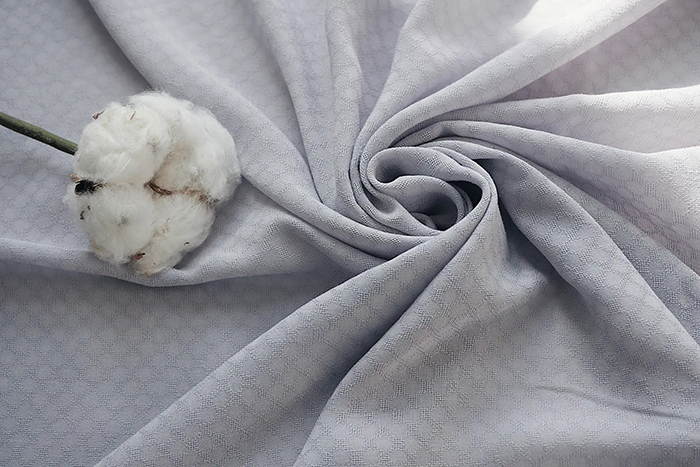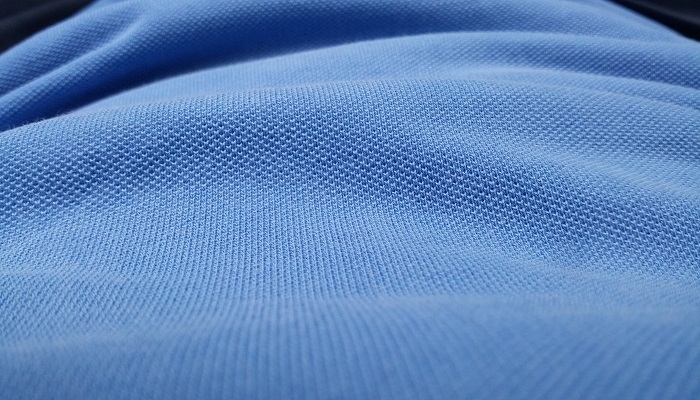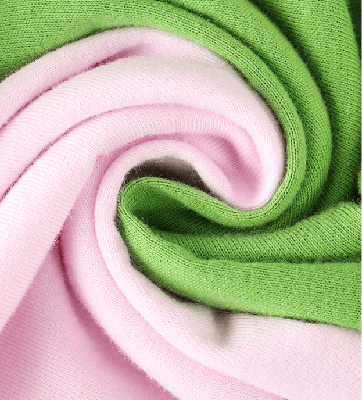The Differences between Artificial Cotton and Cotton
Artificial cotton is commonly known as viscose fiber. Viscose fiber refers to α-cellulose extracted from cellulose raw materials such as wood and plant ligustilide. Or it is the artificial fiber that uses cotton linter as raw material to process into spinning dope and then be made by the method of wet spinning.
Cotton fabric uses cotton as raw material. It is the textile that made by weaving warp and weft yarns in weaving machine. At present, according to the source of cotton, it can be divided into native cotton fabric and recycled cotton fabric.
Distinguishing Method
1.Surface-finish
Artificial cotton cloth has flat cover and very few yarn faults. It has no impurities. It is fine and smooth. But on the surface of cotton cloth, there can be seen cotton-seed hull and impurities, etc. The surface-finish is not as good as that of artificial cotton cloth.
2.Evenness of yarn count
The yarn count of artificial cotton cloth is even. There are very few yarn faults. But the yarn count of cotton cloth is not as even as that of artificial cotton cloth, especially the medium coarse cloth.
3.Handle
The handle of most artificial cotton cloth is soft, no matter it is thin or thick. While the cotton cloth feels a little rough.
4.Color shade
The luster and color of artificial cotton cloth both are good. Artificial cotton cloth is more bright and beautiful than cotton cloth.
5.Creasing property
Artificial cotton cloth creases easily and it cannot recover easily. Cotton cloth is slightly less wrinkled than artificial cotton cloth.
6.Drapability
The drapability of artificial cotton cloth is better than that of cotton cloth.
7.Strength
The strength of artificial cotton cloth is lower than that of cotton cloth. Especially in humid environment, the strength of artificial cotton is poor. Cotton yarn breaks more easily than artificial cotton yarn. Therefore, most artificial cotton cloth is thick. It is not as thin and light as cotton cloth and flax.
The Characteristics of Cotton and Artificial Cotton
Characteristics of Cotton:
1.Cotton fiber has better moisture absorption property. Generally, cotton fiber can absorb water from the surrounding atmosphere. Its moisture content is 8~10%. So when human skin touches cotton cloth, it feels soft and comfortable. If the humidity of the cotton fiber increases, and the surrounding temperature is higher, all the water in the cotton fiber will evaporate, which will keep the cotton fabric in a balanced state and make people feel comfortable.
2.Cotton fabric has good heat resistance. Under 110℃, it will only cause the moisture on the fabric to evaporate without damaging the fiber. So under normal temperature, washing, etc. will not affect the fiber. The heat resistance also improves the durability and washability of cotton fabric.
3.Cotton fiber has stronger resistance to alkali. In alkali solution, cotton fibers will not be damaged.
4.Cotton fiber has good hygienic property. It is natural fiber, whose main components are natural pigments and a small amount of waxy substances and nitrogen as well as pectic substances. By testing and practice, cotton fiber has no irritation or side effects on human skin. Long-term using cotton fiber fabric does no harm to human body.
Characteristics of Artificial Cotton:
Artificial cotton has good dyeability and brilliance and high color fastness. It is comfortable for wearing. Its resistance to dilute alkali and moisture adsorption property is close to cotton. But it is not resistant to acid. And the rebound resilience, fatigue durability and wet mechanical strength are poor. Artificial cotton can be also blended with chemical fibers, such as polyester fiber, etc.
Post time: Feb-02-2023




